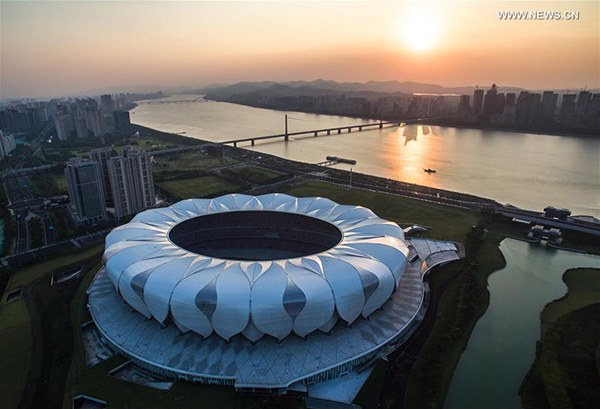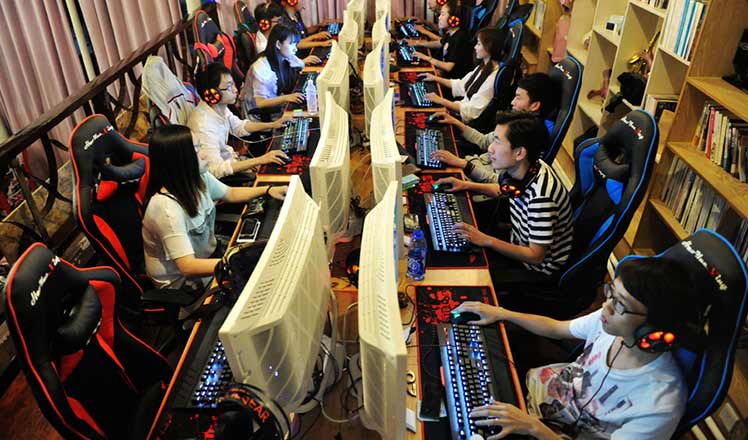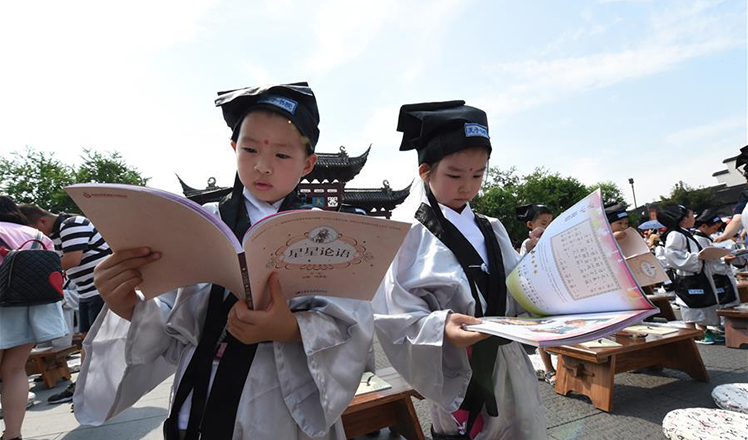Five reasons why Hangzhou's G20 summit can be a game changer
Updated: 2016-09-02 17:09
By Nicolas Santao(chinadaily.com.cn)
|
||||||||
|
 |
|
Photo taken on Aug 25, 2016 shows the Hangzhou Olympic Sports Center in the Binjiang district of Hangzhou, capital of East China's Zhejiang province. Hangzhou is the host city for the G20 Summit.[Photo/Xinhua] |
China hosting the G20 Summit is a sign of the changing times we live in. So is the fact that the event takes place in Hangzhou, the world capital of e-commerce and the cradle of Chinese entrepreneurship. There are reasons to believe this G20 Summit will not be just another conference of all talk and no action. Here are five reasons it could be a game changer:
1. China is now a leader with a successful track record. Initiatives like the Asian Infrastructure Investment Bank (AIIB) and the “One Belt, One Road” Initiative confirm that China is ready to offer reliable alternatives to the existing global and regional governance systems. And this is just the beginning. When it comes to commitment to creating opportunities for all, the message that China sent the world is that the country doesn't just talk the talk, it walks the walk.
2. China’s economic diversity gives it a unique perspective to understand other nations’ challenges. As a country with both developed and developing regions, China is uniquely qualified to understand what wakes the leaders of developing countries up at night, and what the leaders of developed nations should do to facilitate the rise of the rest. Everyone can learn from the Chinese experiment.
3. Technology is in the spotlight. One of the themes of this year’s summit is to build a more “interconnected” world. In fact, led by Alibaba, a company that was founded in Hangzhou, the B20 is set to propose the creation of a global e-commerce platform to help SMEs from all walks to internationalize their business. It is about G20 leaders putting technological tools at the service of development.
4. China never disappoints as the organizer of top-notch events. Martin Jacques, the author of the bestseller “When China Rules the World”, recently said that the G20 Summit is the diplomatic equivalent of the 2008 Olympics and the 2010 Shanghai Expo. The man has a point. This creates a huge incentive for China to focus on deliverables.
5. Chinese entrepreneurship can lift us all up. Will Chinese multinationals be able to develop a global outlook? Perhaps the future of the world’s prosperity lies in the answer to that question. The good news is that when it comes to Chinese overseas investment, we're only seeing the tip of the iceberg. There are at least ten thousand Chinese companies in a position to expand to several regions at a rapid pace in the coming years. The more Chinese companies expand abroad, the easier it is for foreign goods and services to access the Chinese market. “You must establish your own branding in our country and, more important, win a reputation around the globe”, Premier Li Keqiang advised the nation’s enterprises some weeks ago. And, yes, they are listening. Moves like Suning’s acquisition of Inter Milan indicate so.
The international community will soon discover why Hangzhou has become one of the top innovation hubs in the planet. At times when protectionist voices are becoming louder, Deng Xiaoping-style pragmatic action is required to create a more open, integrated economy. If the innovative spirit that powers Hangzhou’s growth reaches global leaders and inspires them to apply creative thinking to planning the next 20 years of global governance, we can expect good results.
The author is a global entrepreneur from Uruguay and the former head of the international department of the Foshan Bureau of Commerce.
- Rousseff appeals impeachment to Supreme Court
- Europeans displeased with their education systems
- Singapore Zika cases top 150; China steps up arrivals checks
- Artists respond to 9/11 attacks in new exhibit
- Rocket explodes on launch pad in blow to Elon Musk's SpaceX
- Record number of Americans dislike Hillary Clinton: poll

 Commemorative G20 stamps a hit at media center
Commemorative G20 stamps a hit at media center
 Ten photos from around China: Aug 26- Sept 1
Ten photos from around China: Aug 26- Sept 1
 Hangzhou: Paradise for connoisseurs of tea
Hangzhou: Paradise for connoisseurs of tea
 Top 10 trends in China's internet development
Top 10 trends in China's internet development
 Childhood captured in raw, emotive black and white
Childhood captured in raw, emotive black and white
 Korean ethnic dance drama shines in Beijing
Korean ethnic dance drama shines in Beijing
 Children explore science and technology at museum
Children explore science and technology at museum
 Children wearing Hanfu attend writing ceremony
Children wearing Hanfu attend writing ceremony
Most Viewed
Editor's Picks

|

|

|

|

|

|
Today's Top News
Trump outlines anti-terror plan, proposing extreme vetting for immigrants
Phelps puts spotlight on cupping
US launches airstrikes against IS targets in Libya's Sirte
Ministry slams US-Korean THAAD deployment
Two police officers shot at protest in Dallas
Abe's blame game reveals his policies failing to get results
Ending wildlife trafficking must be policy priority in Asia
Effects of supply-side reform take time to be seen
US Weekly

|

|







